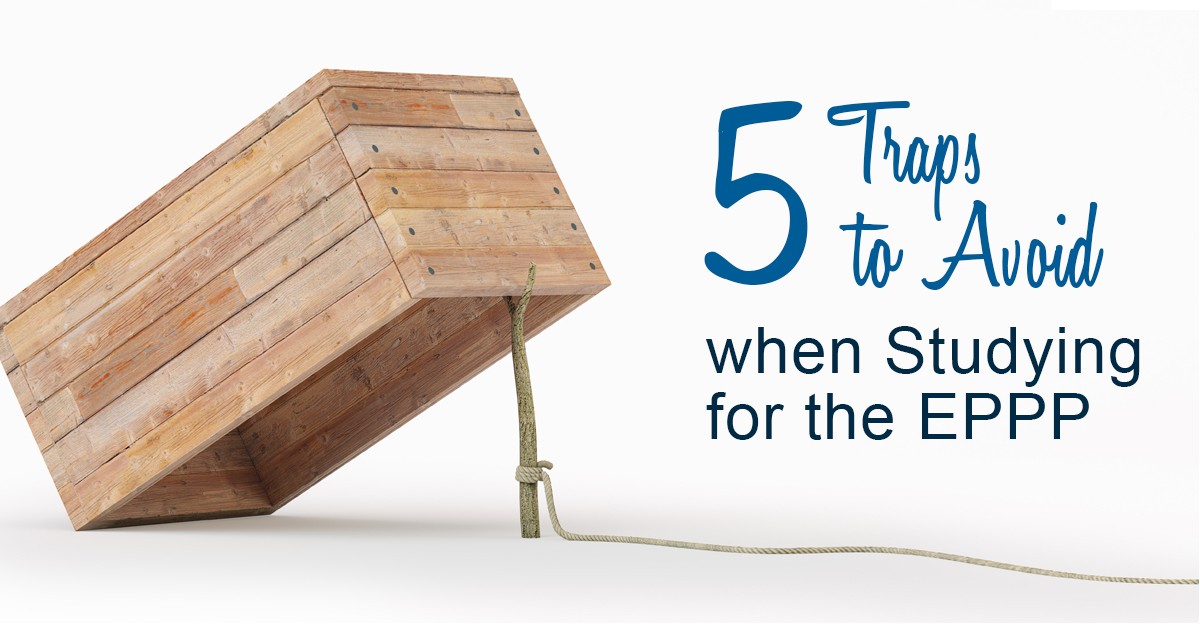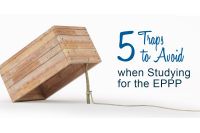

Dr. Nikki Johnson - PsyD
1. Thou shall avoid the temptation to cram.
It may have worked in grad school, but the EPPP is not something you can cram for. With content ranging from prenatal development to statistics to ethical teletherapy, you have a lot of ground to cover. Often, you have not seen some of this material since your undergraduate classes (such as specific theories and theorists) or you may never have seen at all (as is often the case for industrial organization psychology). I strongly suggest setting an approximate testing date and then counting backwards 3-6 months. Then look at your schedule and build in consistent blocks of study time. I usually recommend at least 15 hours per week to keep the momentum going.
2. Thou shall avoid anxiously writing tests over and over.
This might be one of the most common mistakes I see. There seems to be a rumor that “you just need to take a lot of practice tests” and I want to officially debunk this as a myth. Taking practice exams is an important part of preparation: they help you apply testing strategies and provide a gauge for readiness; however, they cannot substitute for deeply studying the content. Burning through your tests too quickly is not a good use of your time, money or energy. Often the movement here is minimal which can be disheartening. In addition, avoid retaking the same tests over and over. It is easy to become hyper focused on achieving a high percentage and tempting to repeat the exam you just took to see an increased score. While it may make you feel better, that score will be heavily inflated by practice effects. Try to keep you tests spaced out so you have time to study in between and can actually see an true increase in your scores!
3. Thou shall avoid shortcuts
You actually have to read the books. There, I said it. I know it seems more efficient to skim flashcards and read over the notes your friend passed on to you, but so much information is lost in this process. The EPPP will demand a deeper level of knowledge beyond recalling a definition and a deep dive into the texts is the best way to ensure you capture this content. I know the material can be dense, so a good plan is to layer the material over time. Read the texts, highlight and capture as much as you can for a first time pass through. Then reread each domain over time and you will assuredly pick up more details every time.
4. Thou shall stop the negative self-talk.
Your mental space is a significant factor when preparing for the EPPP. One of my fellow coaches says “If you focus on failing, why would you expect to pass?”. It can be easy to become discouraged early in your studies wondering “Maybe I have been out of school to long. I’m not as good at this as I used to be. It must be my fault.” Sometimes this line of thinking starts to evolve into a resentment such as “This test has nothing to do with psychology. We shouldn’t have to take it. This seems unfair. I wasn’t adequately prepared in my program”. While I understand and empathize, these thoughts do not serve you in any way other than to reduce your motivation. Everyone struggles with preparing for this exam and your experience is not unique. Try to keep your head in the game and remember you are dedicated, smart and capable.
5. Thou shall remember self-care.
I know this test is a big deal. You have spent years and a lot of money to arrive at this point, so naturally the studying process can take over your life. While you will have to make sacrifices to find study time, remember you are a human and not a robot. Take care of yourself during this process: exercise, eat well and try to make studying as painless as possible. Don’t torture yourself with an 8-hour marathon of straight of reading. That sounds like a nightmare! Block your time into manageable and reasonable chunks so you don’t hit a point of diminishing return. Grab a coffee and a soft blanket, and set a timer for 50 minutes. When the timer goes off, give yourself a 10-minute break before diving in again. Be sure to get good sleep, spend with people you care about and keep perspective. This exam is important, but I am sure it is not the most important thing in your life. Remember there are other things and people that far outweigh the EPPP and this is just a very brief chapter in your overall story.
Dr. Nikki Johnson is a licensed Psychological and a remote coach outside of Seattle, WA. She holds a PsyD in Clinical Psychology with a Forensic emphasis from Azusa Pacific University, an APA accredited school in Southern California.



